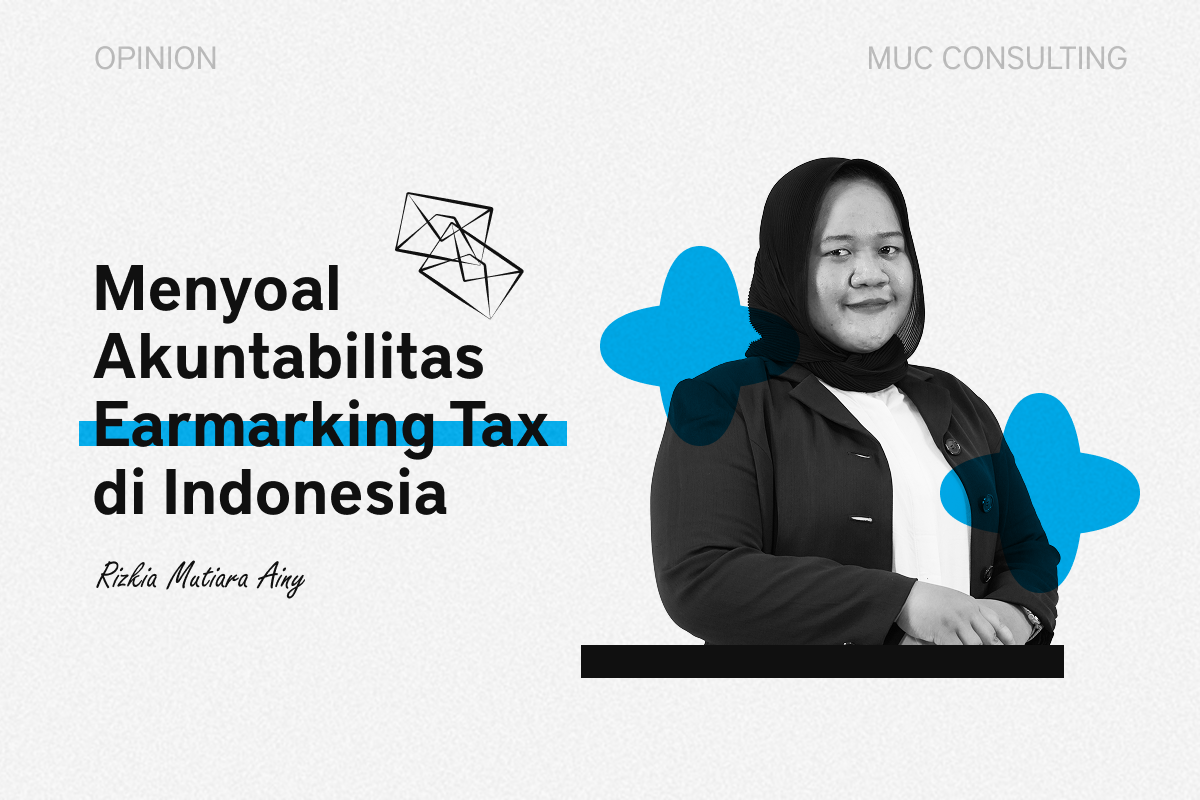Questioning the Accountability of Earmarking Tax in Indonesia

Since the issuance of Law (UU) No. 28/2009 on Regional Taxes and Retribution (PDRD), Indonesia's concept of fiscal management is no longer centralized. Instead, it is distributed to each region or decentralized.
The implementation of fiscal decentralization is an implication of the political decentralization mechanism that Indonesia first adopted, through Law No. 32/2004 on Regional Administration. This regulation authorizes each local government to take care of or manage its government or in other words become an autonomous region.
In the fiscal context, autonomous regional management is characterized by the existence of Earmarking Tax. However, the concept of Earmarking Tax is not explicitly stated in the PDRD Law.
Referring to The International Bureau of Fiscal Documentation (IBFD) in the International Tax Glossary (2015), the Earmarking Tax is also known as appropriated tax or hypothecated tax.
Read: Rain Tax, Fiscal Instrument for Flood Control?
In the context of public finance, these three terms are often used to describe increasing income from certain sources and dedicating it to certain public expenditures.
Direct Compensation
Actually, in the concept of government budget management, the tax acts as a source of government revenue collected from the public. However, the benefits provided by taxes to the community are indirect
The return on tax payments will be allocated through the State Budget (APBN). This concept is different between tax management in general and Earmarking Tax.
In Earmarking Tax, reciprocity or compensation is given to the local government so that it can be used to finance certain programs needed by the community.
In other words, Earmarking Tax is actually a means for local governments to be able to win the hearts of taxpayers or the community. Because it can be used as evidence that the government can manage local tax revenue well so that the benefits can be felt by all taxpayers.
The expectation is that people can be more voluntary in paying taxes. This is because many people consider paying taxes as a burden. Not a few people also think that paying taxes is a waste because the benefits are not immediately felt, thus triggering non-compliance.
Therefore, in general, three factors can underlie the Earmarking Tax. First, it is done based on the personal interests of the community as taxpayers. Second, there is public distrust of the government. Third, to connect various problems related to tax payment.
Still referring to the PDRD regulations, the implementation of the Earmarking Tax scheme has been implemented for three types of taxes, such as motor vehicle tax, cigarette tax, and street lighting tax.
1. Motor Vehicle Tax
The government will allocate at least 10% of the collected motor vehicle tax revenue to district/city regional governments. The allocated tax funds will then be used to finance the construction or maintenance of roads and improve public transportation modes and facilities.
2. Cigarette Tax
From the amount of cigarette tax collected by the government, 50% will be allocated to the Regency/City government. Its use is to fund public health services and law enforcement by authorized officials.
3. Street Lighting Tax
For street lighting taxes, part of the tax revenue is allocated to providing street lighting.
Governance Issues
Although it has been implemented for approximately 24 years, the implementation of fiscal decentralization based on Earmarking Tax still has several issues. Its governance is still considered not optimal so its distribution still raises problems.
For instance, the allocation of funds is still unclear, not on target, and prone to being misused for personal or group interests.
As an illustration, referring to data released by the Corruption Eradication Commission on kpk.go.id, in 2022 there were 22 governors and 148 regents/mayors who had problems managing Earmarking Tax.
Therefore, to mitigate these problems and risks, it is necessary to establish a supervisory institution. The institution should be authorized to evaluate and supervise the implementation of Earmarking Tax in each region.
Without sufficient supervision, the issue of accountability in managing the Earmarking Tax will never be resolved. (ASP/KEN)
Disclaimer! This article is a personal opinion and does not reflect the policies of the institution where the author works.


